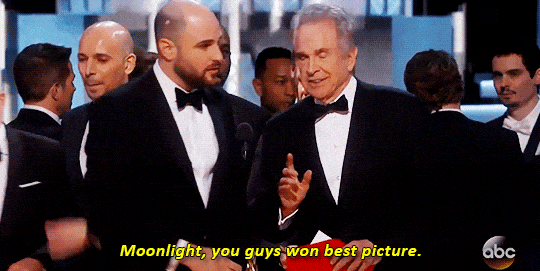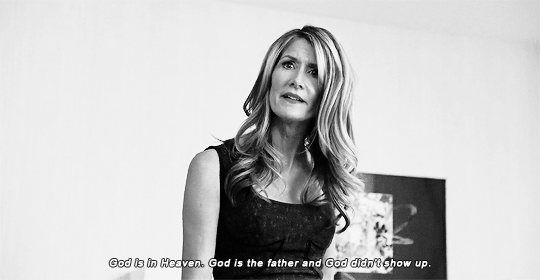Numlock Awards: Who the Critics Like
Numlock Awards is your one-stop awards season newsletter, and it’s back! Every week, join Walt Hickey and Michael Domanico as they break down the math behind the Oscars and the best narratives going into film’s biggest night. Today’s edition comes from Walter.
Critics! What are they good for?
One of the big evolutions in my thinking about the Oscars over the past few years has been evaluating what precisely the point of factoring in critics’ awards has been in light of the changing Academy. In the past, people have used big-city critics’ awards like the New York Film Critics Circle or the Los Angeles Film Critics Organization to try to figure out who’s in the mix for the Oscars.
But whenever I was (tediously, endlessly, constantly) filling in their winners, it was always pretty obvious that the people and films who performed best at those awards had little bearing on who actually was nominated at the Oscars. Case in point? Last year, Ethan Hawke ran the table at a bunch of the major prizes for a weird and intense little movie called First Reformed. It didn’t lead to any Oscars, but it was a great performance and exactly the kind of work that critics’ prizes specifically exist to elevate, the unheralded and compelling work that defines excellence in film outside of the big Oscar narrative juggernauts.
The New York Film Critics Circle is a great example specifically: they gave the award to Timothée Chalamet for Call Me By Your Name, Michael Keaton for Spotlight, Timothy Spall for Mr. Turner, and Robert Redford for All is Lost. They’re into the counter-programming!

So instead of thinking, “Oh, the opinions of these people matter because they’re in geographically significant cities,” I retooled the model to operate on this principle instead: “The opinions of these people matter because they tend to have the same kind of opinions as people who vote on the Oscars.”
I pulled local and regional film prizes from around the country, something like 30 for the acting prizes and 40 for the film prizes. I then ranked these, within each category, to figure out which have historically been the best at actually coinciding with the actual winner.
Generally, a few critics’ groups do better than the big-city ones at projecting the Oscars, like the D.C. area ones, the St. Louis critics, the Las Vegas critics and Dallas-Ft. Worth critics.
Generally speaking, a good-performing critics’ award gets it right 50 to 60 percent of the time. The best five awards in each category go into the model, cumulatively weighted to be worth as much as the average of the Golden Globes and Critics’ Choice awards. The goal is to see if there’s any consistent direction.
Here’s what happened last year.
Regina King ran the table on the critics’ prizes and went on to win the Oscar for Best Supporting Actress, same with Alfonso Cuarón for direction.
Critics had no consensus on Best Actress or Best Actor.
Best Picture was odd: Roma won most of the awards, but when concentrating on just the top five most predictive prizes, won just three.
In fact, Best Picture eluded basically all of the critics’ prizes, with just the Phoenix Film Critics and North Texas Film Critics Association awarding Green Book their top prize.
Phoenix is actually the best in the bunch at picking Best Picture: they also picked The Shape of Water, Spotlight, and Birdman, as well as 12 Years a Slave, Argo, The Artist, and The Kings Speech, missing just Moonlight.
This year, and do with this information what you will, they picked Joker.

The main thing is that most critics usually aren’t trying to predict the Oscars — that’s what the Globes are for — but a few regional critics’ associations almost might be, and so we look at those. It actually doesn’t matter all that much which ones they are category-to-category, but I’l list them for 2020 when I publish the model details tomorrow.
Here are the trends we’re seeing this year.
Laura Dern (Marriage Story) is winning lots of critics’ prizes in supporting actress, notably winning three of six of the most predictive ones. Two haven’t been awarded yet, and the other went to Jennifer Lopez (Hustlers).
Brad Pitt (Once Upon a Time In Hollywood) won three of five of the most predictive supporting actor critics’ prizes, with Tom Hanks (A Beautiful Day in the Neighborhood) winning the most predictive one.
Lupita Nyong’o (Us) has won the most number of critics’ awards for Best Actress, but just one of the five most predictive awards. The other four split between Renée Zellweger (Judy) and Scarlett Johansson (Marriage Story). This is going to be a great category.
Adam Driver (Marriage Story) won the most critics’ awards for best actor, and two of the most predictive ones. Adam Sandler (Uncut Gems) won another two and Joaquin Phoenix (Joker) the last one.
Best Director is absolutely nuts. Bong Joon-ho (Parasite) has won the most awards, but none of the top five. Three of those went to Sam Mendes (1917) and two to Quentin Tarantino (Once Upon a Time In Hollywood)
No consensus on best picture: Once Upon a Time In Hollywood won three of the top five, and 1917 and Joker won one.

The Academy voting is happening as we speak for the nominations! Details tomorrow on the state of the rest of the slate.

